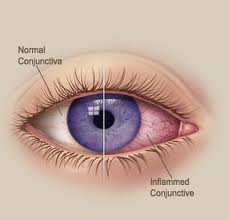Stress is something that affects most people at some point in their lives. Sometimes it can be a job which causes stress, sometimes it can be your personal life, often it’s a combination of both. Stress is also a condition which can have different effects on different people and can range from mild to severe. By understanding how to recognise stress you can understand how to deal with it. The Better at Home reporthas more information.
What is Stress?
Stress is a natural condition in which the brain and body react together to help you to cope with a situation where necessary. Some people say that they work better when under stress but others are unable to cope at all. Stress manifests itself in many different symptoms and can not only affect how you feel physically and mentally it can cause you to behave differently.
Symptoms of Stress
The physical symptoms of stress can include:
- Dizziness or light-headedness
- Headaches
- Muscle pain
- Stomach problems
- Tension
- Breathing faster
Mental symptoms can include:
- Inability to concentrate
- Inability to make decisions
- Constant worrying
- Forgetfulness
- Feeling overwhelmed or a feeling of dread
How You Can Help Yourself
First of all – talk to someone a friend, relative or a health professional such as your GP. If you can’t talk face to face you could contact the Samaritans. Talk to your fellow carers or find a carers’ forum online. You’ll probably find that their issues are the same as yours.
When you feel a stressful feeling coming on try deep breathing exercises – sit comfortably or lie down, breathe in through your nose and take it right down to your belly then slowly breathe out again through your mouth. Do this for 5 minutes or until you feel your symptoms subside.
Download relaxation apps or play a relaxation cd, practise your deep breathing exercises while you listen.
Learn time management techniques to help you manage your tasks more effectively. Work out what you need to achieve in the day and make a to-do list prioritising which tasks are important and which aren’t. Write this down on a piece of paper and keep it on you rather than putting it in your phone; reading a piece of paper can be more restful than scrolling through acres of text.
Focus on what you have achieved throughout the day rather than on the things needing to be done. Don’t rush around, take your time.
Do a small amount of exercise each day. A short, brisk walk or dancing to music for 5 minutes helps to reduce stress hormones and helps to re-energise you.
Take breaks when you need them, providing this doesn’t interfere with your work. If it is beginning to do so, then it could be wise to let people know sooner rather than later so that you can get support. Only when you are feeling at your best can you better care for your patient and cope with your workload. If you’d like to find out anything more about live in care, or the reports we’ve mentioned in this article, you can visit the Live-in Care Hub (www.liveincarehub.co.uk).

